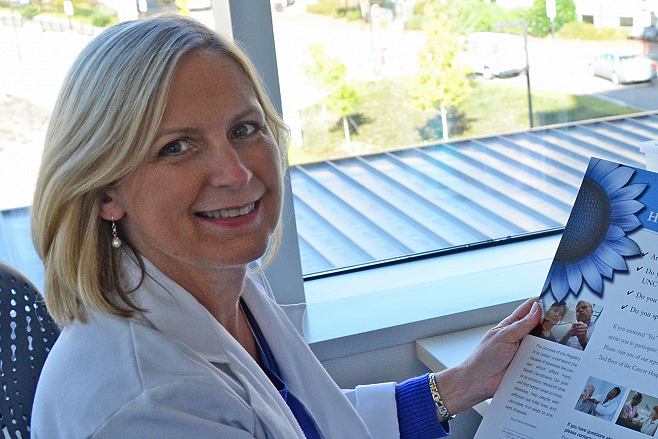Jeannette Bensen, PhD, and her colleagues will study whether there are differences in the financial impact of prostate cancer between African American and Caucasian men. They also will evaluate the influence this may have on the quality of life of both the survivor and their caregiver.

The Department of Defense (DoD) recently awarded the North Carolina-Louisiana Prostate Cancer Consortium (PCaP) a nearly $600,000 grant to support a follow-up focused on the financial burden of cancer among long term prostate cancer survivors and their caregivers.
PCaP is a multi-institutional, population-based study of more than 2,200 men who were diagnosed with prostate cancer between 2004-2009, half of whom are African American. Prostate cancer is the second leading cause of cancer deaths in men. The incidence of prostate cancer is 1.7 times higher in African Americans than Caucasians, and when diagnosed, the death rate for prostate cancer is 2.4 times higher in African Americans than Caucasians. The DOD Prostate Cancer Research Program provided $15 million of initial funding for PCaP as part of its efforts to address prostate cancer racial disparity.
“A cancer diagnosis can present many challenges to patients and their families, including financial hardship,” said Jeannette Bensen, PhD, director of UNC Lineberger’s Prostate Cancer Consortium and research associate professor in the Department of Epidemiology at the Gillings School of Global Public Health. “The expenses associated with treatment, management of side effects and long term follow-up for prostate cancer may affect families differently. We will investigate whether there are differences in the financial impact of prostate cancer between African American and Caucasian men and evaluate the influence this may have on the quality of life of both the survivor and their caregiver.”
The grant will run through 2020.
